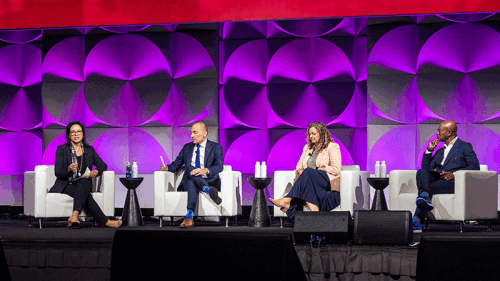Sales per square foot at all but a few public retailers have declined to an average of $325 ($3,498 per sq m), down from nearly $375 ($4,036 per sq m) in the early 2000s, according to research by CoStar. But while e-commerce has been disruptive to traditional retailers, several companies, including Apple, Tiffany, and lululemon, have managed to increase sales despite the broader decline in brick-and-mortar stores.
The top retailer in sales per square foot, viewed as a major component of retail success, is Apple, which did a staggering $5,546 per square foot ($59,697 per sq m) in 2016, according to data from research firm eMarketer. According to technology news outlet 9to5Mac, that number is down from 2012 when Apple was averaging more than $6,000 per square foot ($64,584 per sq m).
Leading the food service retail sector was Reis & Irvy’s robotic frozen yogurt vending kiosk, with sales of $3,970 per square foot ($42,733 per sq m). Parent company Generation Next Franchise Brands has pre-sales of about $27 million as of July 2017, with mass production and a nationwide rollout into movie theaters, malls, airports, hospitals, and tourist attractions across the United States scheduled to begin in the fourth quarter of this year.
The leading apparel retailer is lululemon Athletica with sales of $1,560 per square foot ($16,791 per sq m). With its subsidiaries, lululemon designs, distributes, and retails athletic apparel primarily marketed toward women. As of this January, it operated 406 company-operated stores under the lululemon and ivivva brands in 12 countries worldwide.
Leading the jewelry retail industry with sales of $2,951 per square foot ($31,764 per sq m) is Tiffany & Co., which through its subsidiaries designs, manufactures, and retails jewelry and other items worldwide. As of this January, it operated 125 stores in the Americas, 85 stores in the Asia Pacific region, 55 stores in Japan, 43 stores in Europe, and five stores in the United Arab Emirates.
Leading the gasoline retailers with sales of $3,721 per square foot ($40,053 per sq m) is Murphy USA, which offers motor fuel products and convenience merchandise. At the beginning of this year, it operated about 1,400 retail stores located primarily in the U.S. Southwest, Southeast, and Midwest.



